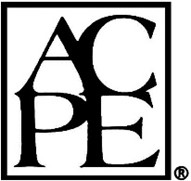"What can it hurt?" Sodium Bicarbonate in Advanced Cardiovascular Life Support (An ACLS Controversy)
Sodium bicarbonate is used frequently during cardiac arrest due to legacy behavior (doing it because it’s traditionally been done) and the perception that its use is harmless. In recent years, there has been increasing evidence from studies evaluating both in-hospital and out-of-hospital cardiac arrest that sodium bicarbonate is not beneficial for empiric use during resuscitation efforts, leading the American Heart Association to classify its use as a Class III (no benefit) recommendation in the 2020 Advanced Cardiovascular Life Support guidelines. Further, its use may actually be negatively associated with outcomes such as achievement and maintenance of return of spontaneous circulation (ROSC), survival to discharge, and favorable neurological outcomes. This session will address proposed mechanisms of the potential deleterious effects of sodium bicarbonate administration, several studies evaluating outcomes in patients given sodium bicarbonate compared with patients who were not, cardiac arrest situations in which its use may be beneficial, and the role pharmacists can play in ensuring appropriate usage.
This program has been planned for Baptist Health employees. An access code will be required.
Target Audience
This knowledge-based program is intended for pharmacists. For this specific educational offering, the target audience will be employees of Baptist Health.
Learning Objectives
1) Describe potential adverse effects of sodium bicarbonate administration during cardiac arrest
2) Discuss recent literature regarding use of sodium bicarbonate in ACLS
3) Review appropriate cardiac arrest situations in which sodium bicarbonate may be beneficial
4) Highlight opportunities for pharmacist-driven interventions during cardiac arrest
Travel
Dr. Ashlee Milam, PharmD is a post graduate year 1 (PGY-1) pharmacy resident at Baptist Medical Center South in Montgomery, AL. She graduated magna cum laude with a Doctor of Pharmacy from Auburn University's Harrison College of Pharmacy in Auburn, AL. Her practice interests include emergency medicine, critical care, and infectious diseases. She is the primary author of “Evaluation of Monoclonal Antibodies in Preventing Hospitalizations, Emergency Department Visits, and Mortality in High-Risk COVID-19 Patients” published in Journal of Pharmacy Technology (2022) and is also an author of the review article "Cabotegravir: The First Long-Acting Injectable for HIV Preexposure Prophylaxis" published in Annals of Pharmacotherapy (2022). Her professional memberships include American Society of Health-System Pharmacists (ASHP), American College of Clinical Pharmacy (ACCP), and Alabama Society of Health System Pharmacists (ALSHP).
 Auburn University is accredited by the Accreditation Council for Pharmacy Education as a provider of continuing pharmacy education; credits are recognized nationwide. The Universal Activity Number for this knowledge-based program is 0001-9999-23-021-L01-P and is intended for pharmacists.
Auburn University is accredited by the Accreditation Council for Pharmacy Education as a provider of continuing pharmacy education; credits are recognized nationwide. The Universal Activity Number for this knowledge-based program is 0001-9999-23-021-L01-P and is intended for pharmacists.
Available Credit
- 0.50 ACPE PharmacyAuburn University is accredited by the Accreditation Council for Pharmacy Education as a provider of continuing pharmacy education; credits are recognized nationwide.
Price
This program has been planned for Baptist Health employees. An access code will be required.
Please click ADD TO Cart. You will be directed to your shopping cart for check out or you can proceed to check out by clicking on the shopping cart icon at the top right of your screen.
If you have a COUPON CODE, it can be applied on the shopping cart page or the CHECKOUT page. Please click APPLY TO ORDER.
Proceed to CHECKOUT and fill in your information. Choose your payment method and REVIEW ORDER.
You will be directed to our payment system to complete your order. An order confirmation email will be sent to your email address on file.
Once your order is complete, you will now have access to the course materials. Return to the course page and click TAKE COURSE to proceed.
Required Hardware/software

 Facebook
Facebook X
X LinkedIn
LinkedIn Forward
Forward